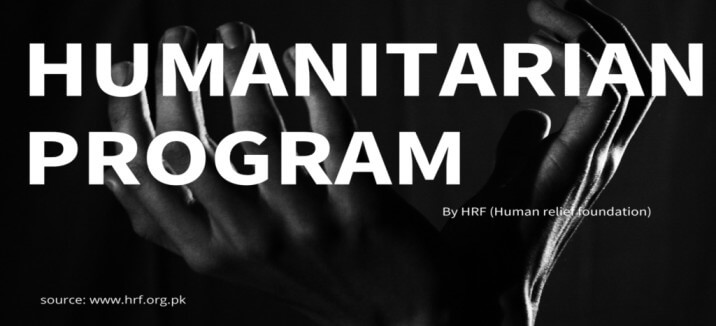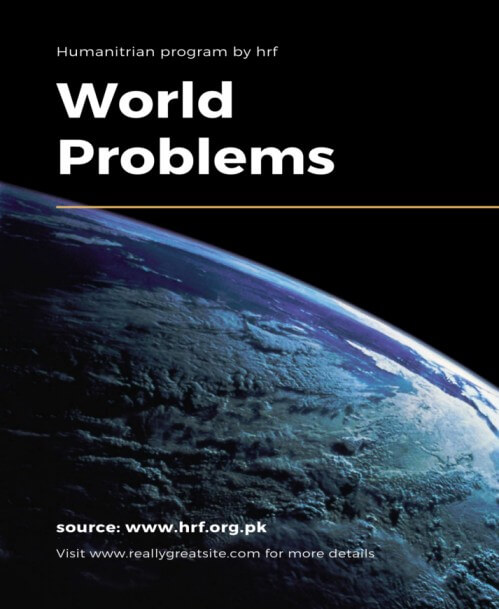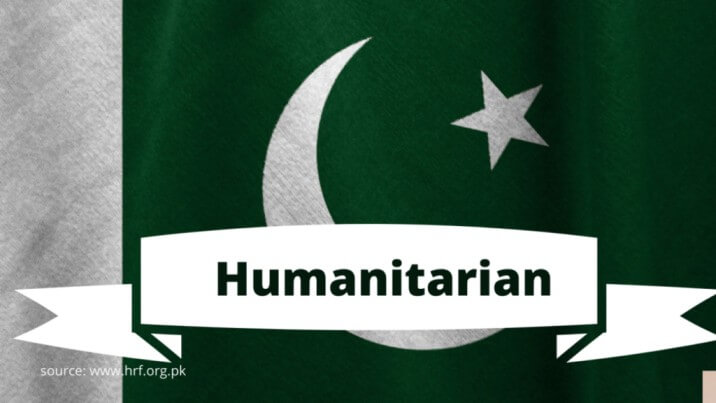
Every year, wars, floods, earthquakes, droughts, and diseases claim millions of lives. Humanitarian relief workers assist those who have strained to run away from their homes due to conflicts or natural disasters. Large humanitarian organizations use professional humanitarian workers because they have the infrastructure and resources to support and respond to various disasters and crises around the globe.

Worldwide Problems and Humanitarian Organizations
The United Nations Office for the Incoordination of Humanitarian Affairs (OCHA) launched the Global Humanitarian Overview (GHO) 2020 as a "comprehensive, authoritative, and evidence-based evaluation of the world's humanitarian needs." Several dangers and crises were identified in this assessment study, including climate change, economic slowdown, infectious diseases, and human-caused conflicts. As per the UNHCR, essentially 82.4 million individuals have been compelled to from their homes throughout the planet. Almost 26.4 million displaced people. Generally, 50% of whom are younger than 18 are among them. Many individuals are stateless, incapable of getting to fundamental rights like schooling, medical care, business, and opportunity of development declined.
Pakistan and Humanitarian

Pakistan has the experience and capacity to respond to humanitarian emergencies. In 40 years, Pakistan has hosted 4-5 million Afghan refugees. Currently, around 1.4 million registered Afghan refugees and approximately 0.6 million unregistered Afghans' assistance, necessities, and protection by Pakistan.
Natural disasters such as earthquakes, droughts, floods, heatwaves, and extreme cold are common in Pakistan. Pakistan ranks fifth among the countries most affected by severe weather events, according to the Climate Risk Index 2020, and climate risk continues to rise. Pakistan continues to be impacted by the Covid-19 Pandemic's complicated shocks. Pakistan is making steady progress in the achievement of Sustainable Development Goals (SDGs). In 2021, Pakistan Humanitarian Response Plan (HRP)' was launched by Govt. of Pakistan and the United Nations.
Problems suffered by Pakistan

Viruses and a scarcity of resources
More than 25 nations, especially in Sub-Saharan Africa, are impacted by the violence that requires humanitarian aid, with metabolism tract health problems, diarrhoeal difficulty, measles, OR in native areas, malaria being essential sources of mortality and sickness. Infectious is responsible for up to 70% of all deaths in these countries
Natural disasters
Climate shocks are a primary cause of the world's eight worst food crises, resulting in widespread displacement, hunger, and death. However, few humanitarian relief appeals include a climate-change component. Anticipating climate-related catastrophes and intervening early to limit the harm they create can save lives and lessen socioeconomic pressures among the country's most vulnerable to climate change.
Changes in the Climate (Extreme Weather)
We've seen more severe storms, floods, and droughts in recent years. Increased temperatures have jeopardized people's health, water, food supplies, and livelihoods, making them more vulnerable to humanitarian catastrophes

Natural Disasters Caused by Humans
War, common distress, rushes, fires, transportation mishaps, mechanical mishaps, clashes, oil slicks, fear-based oppressor assaults, and atomic blasts/radiation are only a couple of models.
| How HRF Contribute to solving these Problems in Pakistan |
Human Relief Foundation (HRF) is a humanitarian and development organization. HRF responds to all emergencies and works as a relief and sustainable development organization. In this regard initiated different programs such as water for life, orphan sponsorship program, permanent shelter program, skill development program, food & nutrition program, and sponsored severe and chronic patient. In addition to long-term developmental programs, HRF also provides emergency response in natural and man-induced disasters i-e floods, earthquakes, wars and pandemic diseases, etc. In such disasters, HRF provides services like medical camps, food packages, cooked food, temporary shelters, and other needed services. The services provided by HRF during natural disasters are:
1. Earthquake 2005:
HRF started working in Pakistan after the October 2005 earthquake. Since then, it has responded to every disaster in the country. HRF provided support to 1.0 million beneficiaries and spent 200 million PKR to better the earthquake-affected population, i.e., in emergency response, early recovery, and reconstruction of the earthquake-affected population during its eight years of interventions (2005-2012). HRF provided food parcels, health care services, tents, temporary shelters, kitchen sets, hygiene kits, permanent shelters, and cash grants to orphans, the elderly, and other vulnerable people. HRF responded to the 2005 catastrophic earthquake in Pakistan by visiting Kashmir to assess the actual situation. HRF successfully established a village camp in Thuri Park, Muzafarabad. HRF provided food, water, shelter, clothing, and healthcare to around 20,000 displaced populations for one year. In 2006 after Govt. AJK decided to shift affected families to their native areas. HRF Pakistan constructed 100 earthquake-proof Japanese-designed houses.
2. Flood Response 2010:
Emergency medical service is one of the basic needs during a disaster situation. The provision of proper emergency medical services helps in saving the precious lives of disaster-stricken areas. HRF has been taking part in this noble cause through its humanitarian program and providing relief and saving people's lives in disaster-affected areas. After the devastating flood of 2010, HRF supported Munawar Welfare Foundation (MWF), a Mianwali based NGO. HRF, with the collaboration of (MWA), had run a hospital for ten years and provided primary health services and free medication to 1.0 million beneficiaries to all affected populations of Essa Khel Mianwali. In this hospital, 53 free eye surgeries were conducted, and 5,000 patients received free eye checkups.
3. Earthquake 2019 Mirpur Kashmir:
HRF provided health services during the Mirpur (AJK) earth quack in 2019. HRF provided medicine to the medical camps organized by the district government. Moreover, HRF provided 1000 hygiene kits to the COVID-19 affected families. In Mirpur during earth quack 2019, HRF distributed food packages to 200 earth quack affected families. Moreover, 50 mosquitos' nets were also distributed among the affected families. HRF also provided 12 tents for the reopening of the damaged school in the affected area
4. COVID 19 response:
HRF responded in the COVID 19 in Mardan, Peshawar, Rawalpindi, Lahore, Rawlakot, and Rajapur districts. HRF provided food parcels to more than 2,100 families (15,000 individuals). Besides, HRF also installed 100 Hand pumps to provide clean drinking water to more than 10,000 populations through the installation of 200 hand pumps. • In 2020, cooked food was distributed by HRF in the flood-stricken communities of Tharparkar district in Sindh. Furthermore, HRF spread food packets amongst COVID-19 affected families.
5. Funded other vulnerable people:
Persons with disabilities (PWDs) are considered the most pitiful and helpless creatures of society. HRF does not this like that; HRF thought them, differently-abled persons. Its mission is to provide services to them to make them self-reliant and independent. HRF provided 200 wheelchairs to the physically disabled in district Tharparkar. HRF takes into consideration the PWDs and their needs in all its programs. In addition, a very modern hearing aid device was provided to a beautiful child in the Mardan district, KP. His family could not offer him this device, and this was a hurdle in his learning abilities. Besides, HRF also provided funds for the two chronic patients, belong to Mirpur Azad Kashmir for their treatment for the last two years.
Join us to help humanity
Whoever removes grief from believer amongst the sorrows of this life, Allah will remove grief from him amongst the sorrows of the Day of Resurrection" (Sahih Muslim)
Cooked food for a family:
Food for a family:
Tent for a family:
Temporary shelter for one family:
Kitchen set:
Hygiene Kit:
PKR. 500/- day
PKR. 8,000/month
PKR. 15,000/-
PKR. 30,000/-
PKR. 15,000/-
PKR. 8,000/-
Your support in these disasters will save many lives.

- Office No 3, 2nd Floor, Plot 13-C, G-10 Markaz, Islamabad
- +92-51-2740313
- info@hrf.org.pk
